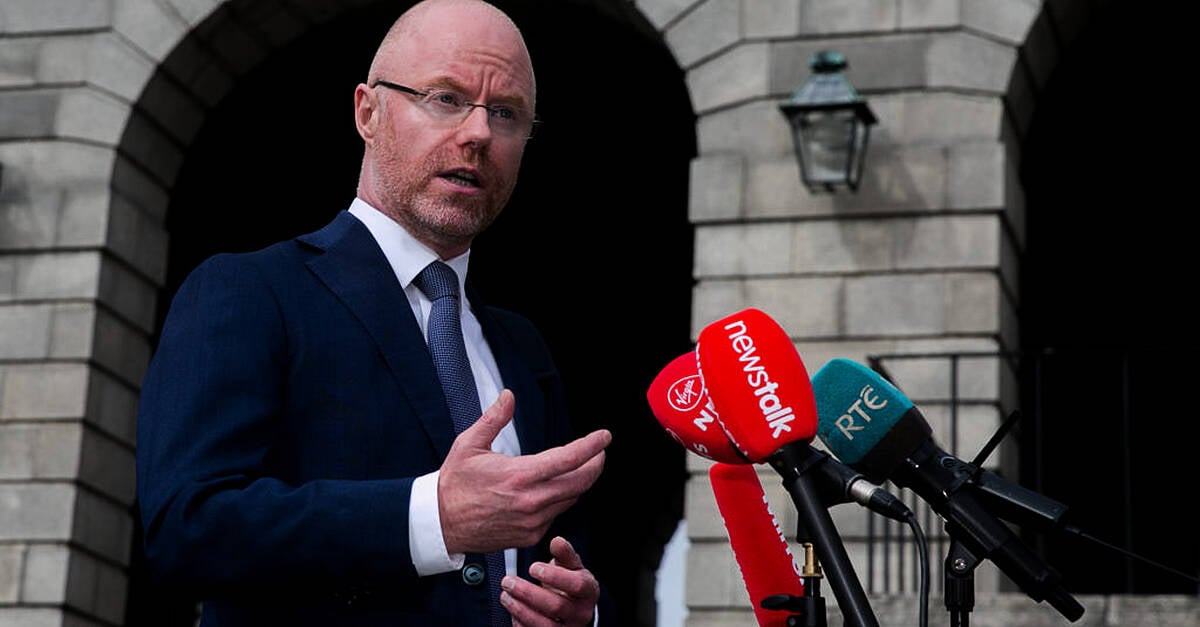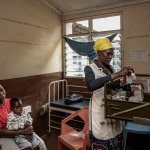
Updated at 13:30
The State is studying more than 10 possible cases of the new Omicron coronavirus variant after initial tests showed they had a trait distinguishing it from the dominant Delta variant, Minister for Health Stephen Donnelly has said.
Unlike Delta, which has dominated infections worldwide this year, Omicron has a mutation known as the S-gene drop-out, which means that PCR tests can give a clue to the presence of the new variant.
Mr Donnelly said the suspected cases had been sent for full genomic sequencing, but that it is likely officials will be confirming Omicron infections in the coming days.
“It’s not possible to know how many cases there may be here. The number that were sent for whole genome sequencing is a little over 10, that’s based on a sample of positive cases that would have this particular type of test,” Donnelly told Virgin Media News.
Advertisement
The Government has told Irish residents to avoid non-essential travel to seven southern African countries due to concerns over Omicron – first detected in South Africa – and may restart a mandatory hotel quarantine regime in a bid to slow any spread.
Genome tracking
Earlier, Stephen Donnelly said it was “likely” that the Omicron variant was already in Ireland.
A number of suspect cases were undergoing genome sequencing, he told RTÉ radio’s Today with Claire Byrne show.
The Minister defended Ireland’s level of genome tracking, he said it was the third highest in Europe, behind the UK and Denmark, and that at present ten percent of samples were being sequenced.
Mr Donnelly said that he was in regular contact with the Chief Medical Officer, Dr Tony Holohan who was very concerned about the emergence of the Omicron variant and that measures were being considered on a precautionary basis.
It was important to await definite evidence of the new variant – did it transmit more easily, did it cause more serious illness and what was the impact of vaccines on the new variant, he added.
Prior to the emergence of the new variant the country had been quietly confident that the situation was improving, that meant that it was essential to maintain public health measures.
Advertisement
The Minister said that the party leaders would meet with the Chief Medical Officer today and that a memo would be prepared with recommendations for the Cabinet meeting tomorrow.
“We will have to wait to see how today goes” he said when asked about the possibility of further restrictions.
It was not helpful to get caught up in numbers, Mr Donnelly added.
Travel restrictions had worked in the past, so if necessary they would be introduced.
The Minister also said that antigen tests no longer needed to be subsidised as the market had already responded and reduced the price. People needed to be sure they were CE marked and were for self testing.
Booster vaccines
Minister Donnelly also said despite Niac approval for the booster campaign to be extended to everyone over the age of 16, walk clinics at present are only for those over 60 and healthcare workers.
“There are only so many vaccines that can be given in any week, so we have to prioritise,” he told RTÉ radio’s Today with Claire Byrne show.
Prioritisation was necessary to ensure that the vaccine got to those most at risk, the system was working, he said, as a reduction was being seen in cases in the age groups targeted by the booster campaign to date.
When asked about people over 70 where their GP had referred them to a vaccination centre, the Minister said that GPs should not refer patients to a vaccination centre, they should refer to another GP.
The new variant Omicron would now raise question marks about what measures should be taken, no government could predict what measures would need to be in place until there was further information on the new variant.
Additional reporting Reuters











